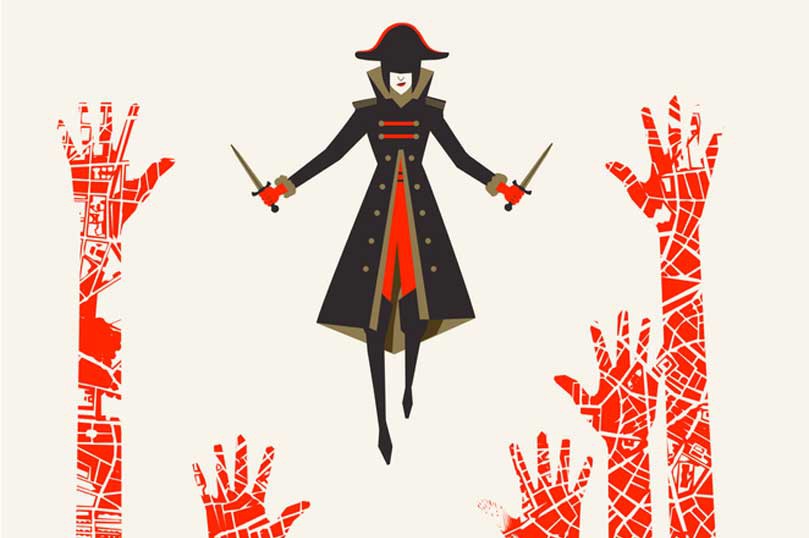opens in a new window Written by opens in a new windowV. E. Schwab
Written by opens in a new windowV. E. Schwab
I am not a linguist—I barely speak French, and that’s after studying it for four years—but I knew from the outset that the Shades of Magic series would feature not only multiple Londons, but multiple languages.
As a writer who has to construct a world before she can fathom the people who live within it, it was only natural that, to understand the insiders of my myriad realities, I’d have to understand how they spoke. Were they the kind of people who had a dozen words for love? Or no word for God? How did they say hello? Farewell?
Words are, of course, the building blocks of stories. But they’re also a key facet of setting, of character, and, when it comes to fantasy, of world. Stories are populated with insiders and outsiders, and the existence of a language to which readers aren’t instantly privy emphasizes that they do not belong. It slows our introduction to the world, but does not prevent it. Instead, readers are forced to learn as they go, just as travelers would, when passing through a foreign land.
Languages don’t only serve as gatekeepers to readers; they play the same function within the narrative. They can make characters feel excluded. Lila Bard finds herself in a London where her own language is a mark of royalty and where she cannot grasp the common tongue. Kell is constantly frustrated by the fact people refer to him as aven—blessed—or vares—prince. And then, of course, there’s the language that only Kell speaks: a tongue that marks his gift as Antari, and isolates him further.
There are differences between the fictional languages within the book, each invariably invoking some real-world echo in our minds. The people of Red London speak a tongue that is sibilant and smooth, whereas in the harsh climate of White London, they speak a guttural one, and Grey London, our stand-in for the real world, becomes both familiar in its Englishness, and foreign as, over the course of the series, we spend more time with other tongues.
One of the most exciting things for me, as a writer, has been the eagerness with which readers have sought to learn certain phrases, to memorize the meaning of Kell’s spell words or the common greeting between princes, or even some of Calla’s more obscure expressions. While the majority of oft-quoted phrases are in Lila’s common English, it’s an extraordinary thing to see a fan sign off a letter with As Travars. Used poorly, fictional languages can feel like a wall, preventing all but the well-versed from feeling included in a world. But used well, they can invite the readers to become part of a world they love, transforming from a barricade into an open door.
Order Your Copy
opens in a new window opens in a new window
opens in a new window opens in a new window
opens in a new window opens in a new window
opens in a new window opens in a new window
opens in a new window
Follow V. E. Schwab on Twitter at opens in a new window@veschwab, on opens in a new windowFacebook, and on opens in a new windowher website.



